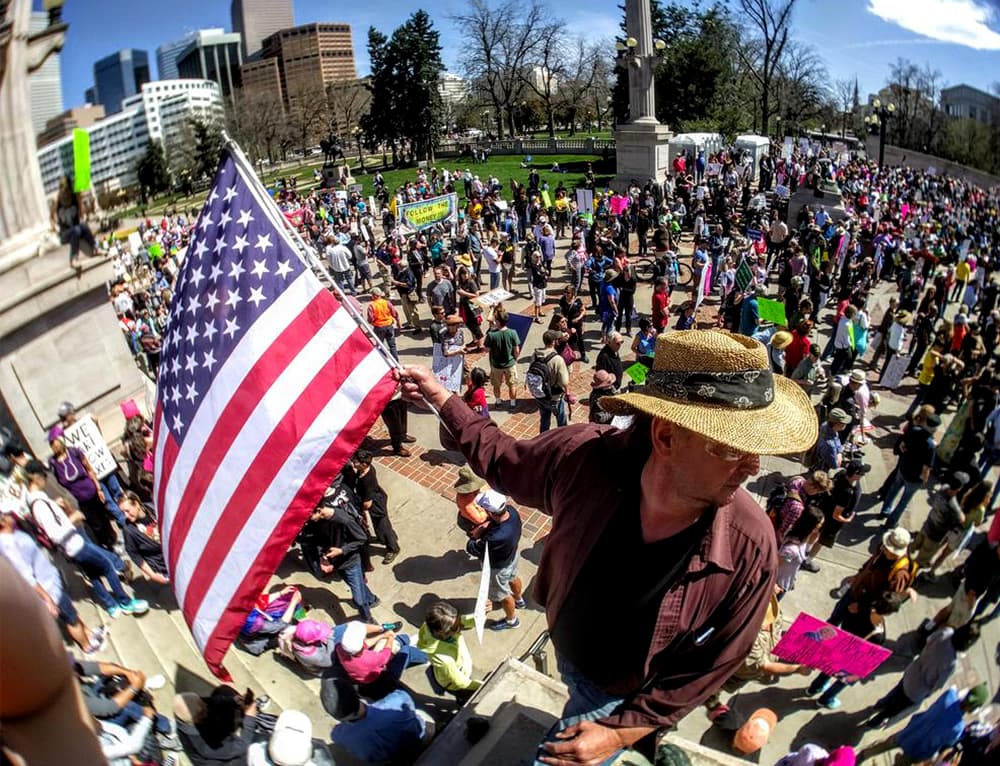
Two days after a few thousand people in Denver and a bunch more around the country marched to demand that President Donald Trump release his tax returns, a Colorado House committee approved a bill that would make releasing your tax returns a condition of getting on the presidential ballot in Colorado.
The bill's Democratic sponsors said they don't see this as a partisan issue but rather one of transparency and public trust.
"We think this fits firmly within 40 years of tradition in the United States, one of the unwritten rules of American politics. We think it's time to write these rules down," said Rep. Chris Hansen, a Denver Democrat.
Nonetheless, the 7-5 vote in the House Finance Committee occurred along party lines. The Republicans who voted no said they're not necessarily opposed to requiring such disclosure, but they don't think a state-by-state approach is the right way to address this issue. They also asked why stop at tax returns. Why not require disclosure of college transcripts or birth certificates?
More than half the states are considering nearly identical legislation to use ballot access to compel the release of tax returns -- something that's never been a requirement but that had become a custom of American politics until the 2016 election when Trump declined to release his returns. Colorado's bill might not make it out of the Republican-controlled Senate, but even if some states do make the release of tax returns a requirement to appear on the ballot, there's likely to be legal challenges.
Previous court decisions have found that states cannot impose additional requirements on federal office-holders beyond those described in the constitution. Proponents argue this isn't an additional requirement on a federal office-holder -- the way that term limits would be -- but is more like the variation between states in how many signatures it takes to get on the ballot.
HB17-1328, "Require Candidates to Disclose Income Tax Returns," would require that anyone who wishes to appear on the ballot for president or vice president in Colorado provide five years worth of tax returns to the Colorado Secretary of State. Those returns would have be provided 90 days before the date of the election for the candidate or their running mate to appear on the ballot, and those returns would be published on the Secretary of State's website.
The League of Women Voters and Colorado Common Cause both testified in support of the bill, as did a number of people who described themselves as affiliated with Indivisible, one of many resistance organizations that have sprung up since the election.
But the Colorado Secretary of State's Office opposes it. Deputy Secretary of State Suzanne Staiert said the bill would face almost certain legal challenges and tie up the office in expensive and lengthy litigation. She also opposed it on more philosophical grounds. Colorado is one of the easiest states to get on the ballot for president. Candidates for major parties have to win a primary, but other candidates can get on by collecting 5,000 signatures or just paying $1,000. This is why Colorado voters had more than 20 choices for president in 2016.
"This sets up a situation where a candidate could win the majority vote in a primary and then be denied ballot access," Staiert said. "... Then those voters are denied the right to vote for the candidates of their choice."
That is, rather than compel candidates to release their returns, the legislation could have the effect of causing candidates to withdraw, particularly in states where they didn't think they would be competitive to begin with.
"Ballot access is the first step in countries where we question the integrity of their elections," Staiert said. "You don't need voter suppression when people cannot access the ballot."












